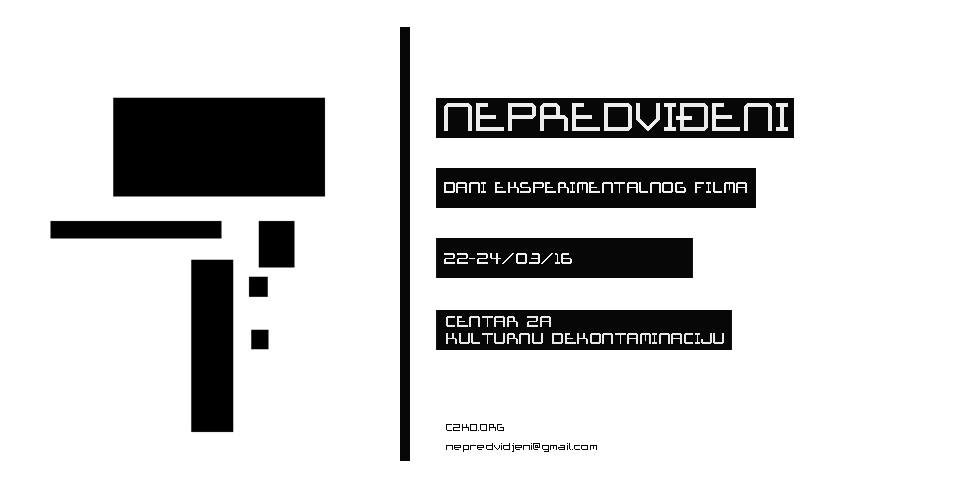
The Unforeseen 2016 / 22-24.3.2016./
The days of experimental film Unforeseen are conceptualized as a support for reflection, development and production of experimental film. This festival is envisaged as opening a space for articulating a new politics of public support and of providing infrastructure, educational and production models in the development of experimental film. It is going to be achieved through discussing the meaning of the experimental film today as well as its possible practices. The format will be the one of educational, special and competition film program as well as of discussions and lectures. We are going to recollect the development of the concepts and the production of the avant-garde and alternative film as well as the regional and the international historical and present-day context of the development of this practice by looking into the experimental perspectives in film and within the cinematic apparatus in Yugoslavia and Serbia. The title of the festival Unforeseen is reflecting the current position of experimental film within the cinematic apparatus in Serbia today. Our wish is for the festival to continue to reflect the future contemporary and unforeseen answers to a call for experimentation and for emancipated thinking on film.
Within the part of the program entitled Classroom we aim to shed light on the notions of avant-garde film (Adam Ranđelović), anti-film (Petra Belc), experimental film (Slobodan Šijan, Ivica Đorđević), alternative film (Miroslav Bata Petrović) and guerilla film (Aleksandra Sekulić). In the part of the program dedicated to discussions we will invite the bearers of public cinematic infrastructure in Serbia to talk about the ways in which it is possible to support the development of experimental film. The competition program will feature the selection of films submitted through a public call of the festival selected by a selection committee that consisted of Nevena Lazić, Adam Ranđelović and Ivica Đorđević.
The jury consisting of Petra Belc, Andrija Dimitrijević and Ognjen Glavonić will select a film or a number of films that stood out as the most daring answers to the call for experimentation in film.
Photos by Srđan Veljović.
The Unforeseen 2016 / Film Program
C O M P E T I T I O N P R O G R A M
FRIEDRICHSFELDE OST
directors : Milica Jovčić & Nenad Ćosić
Serbia / Croatia, 2014, 4', 16mm
Metro station as a place of constant moving.
Play with light and reflections from abstract to concrete forms.
GRAND PRIX
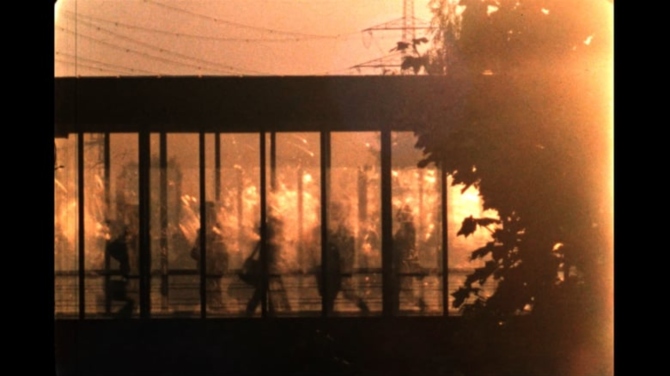
BRIGHT FUTURE MY LOVE
director: Marko Žunić
Serbia, 2014, 30', digital
One Employee is trying to Resist System.
SPECIAL MENTION

PLEJBOG/ PLAYGOD
director: Marko Milićević
Serbia, 2015, 7', 35mm / found footage
Sequence of pagan sacrifice from King King (1933) is rephotographed in a hall of mirrors. Indigineous warriors from the Island of Kong are slowly assembling abstract pieces on the canvas of tribal choreography. A look inside the caleidoscopical intervention on the exotic dance of interracial sexual politics through the lens of a found footage playboy/ playgod.
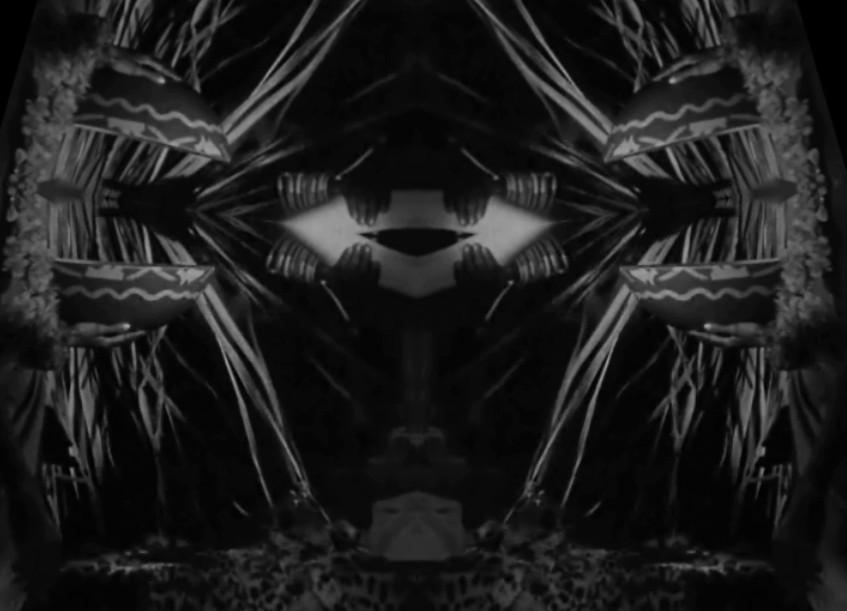
LISTEN, TRY NOT TO DWELL ON THAT IDEA, PLEASE
director : Benjamin Ramírez Pérez
Germany/ Serbia, 2014, 6', Super 8 mm
Bodies tossing in bed, fingers running through hair, reaching for the outside, presed agains the wall. Blinds closed. A remake of Michelangelo Antonioni's L'Avventura from memory.
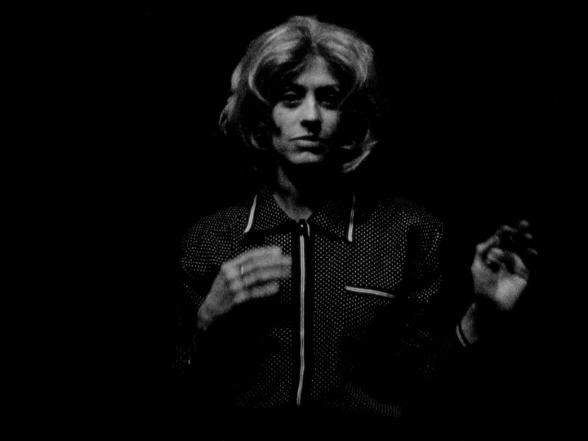
DING DONG
director : Maja Rezoug
Croatia, 2016, 10' 26'', 16mm
Experimental poetry film based on the psychological novel Aporia, the first book of a young contemporary Croatian writer Hrvoje Milic. The book has no plot, and is completely built of interior monologues. The character’s constant and neverending contemplations create a tensive psychodrama, in which the exterior expresses his state of mind and emotions, all negative - absurdity, superficiality, bitterness, disgust. Excerpts of poetic prose, read by the author, the sound and experimental use of montage, subtitles and black screen are creating a rhythmic spiral sinking into the (un)conscious.
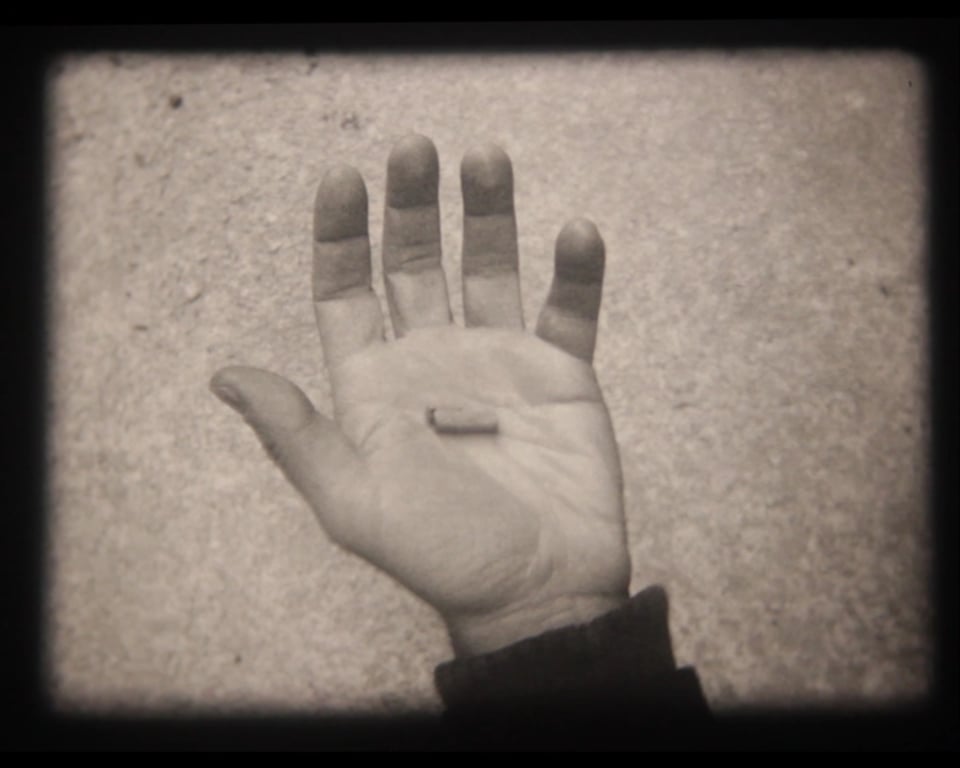
P A N O R A M A (N O N - C O M P E T I T I O N)
CARNIVAL
director : Marko Milićević
Serbia, 2015, 7', Super 8mm
“Blow-up” as the cinematic devil in the details. Partly a documentary on traditional carnival festivity in Macedonia, resembling a backstage of a George Romero horror movie, partly an anthropo-psychological thriller/ whodunnit, while slowly enveloping a meta-commentary and moral /subjective investigation on the level of the frame.
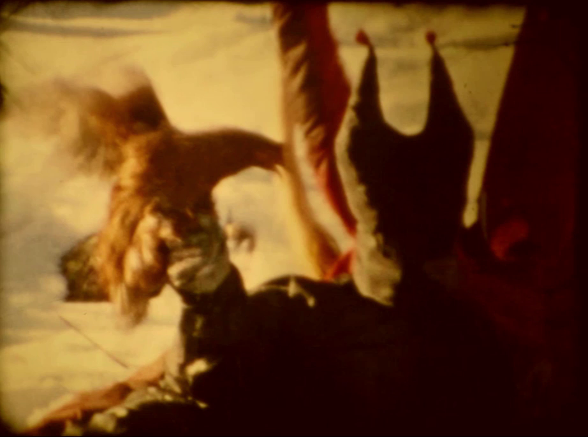
A CHANCE CALLED WIZARD
director : Aleksa Mirosavljević
Serbia, 2015, 1'31'', digital
Short trick film inspired by the early cinema works of George Méliès.
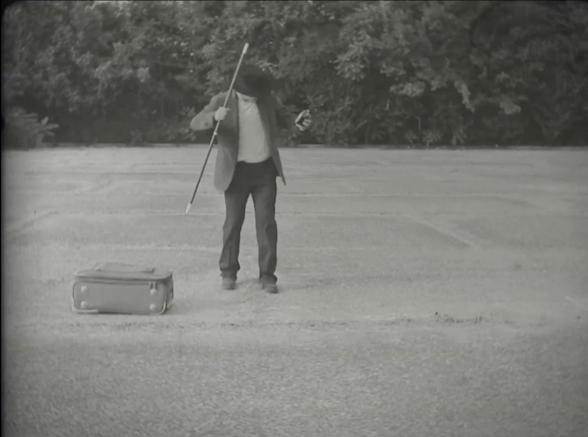
PEOPLEMETER
director : Bob Milošević
Serbia, 2013, 15', digital
As umbrellas scurry about like spiders, inanimate metal objects scuttling through emptied streets, and electronics send clicks and crackles between robots, Peoplemeter produces a post-apocalyptic world without humans. Microscopes and endoscopes shoot these objects in revelatory ways, as the musical score amplifies their sounds...
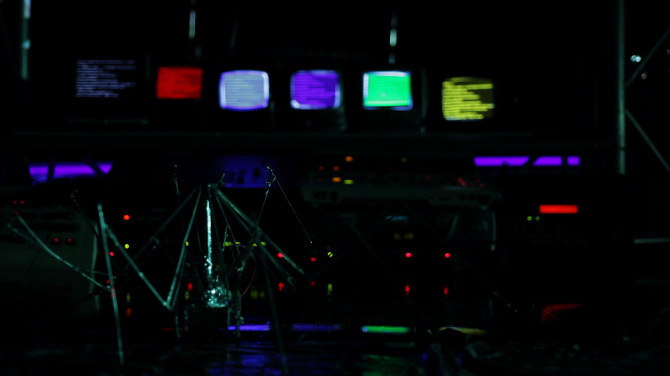
MASKS
director : Milan Milosavljević
Serbia, 2014, 3', digital
Film on the topic of masking and ritual disguise which metaphorically talks about phenomenon in artistic communication. Part of EXquisite Corpse Cinema.
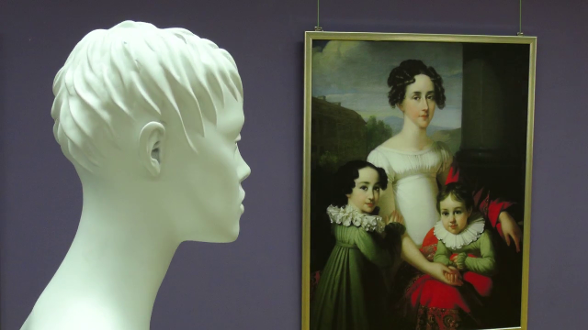
The Unforeseen 2016 / Classroom
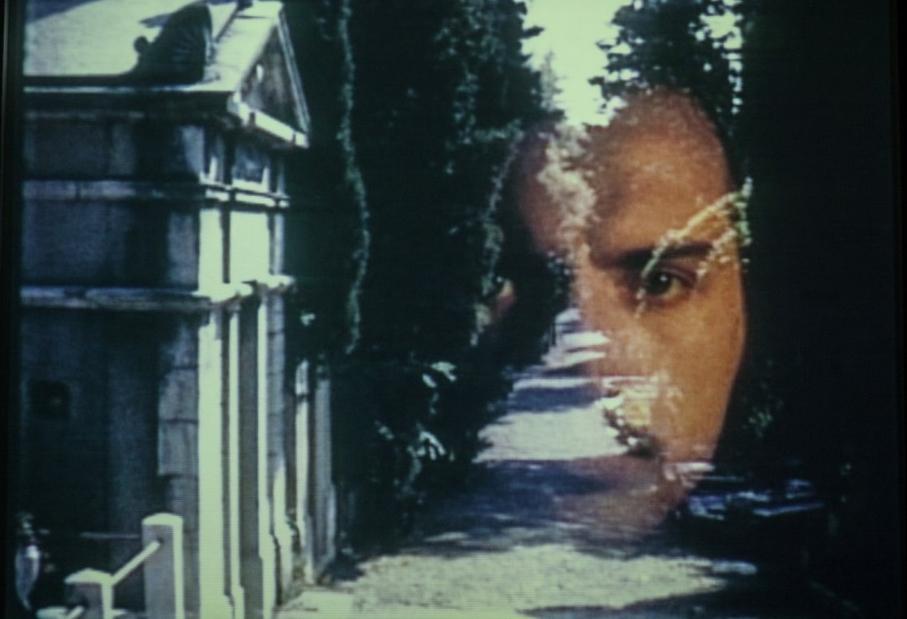
The Classroom 1 : Experimental films of Slobodan Šijan
"The ones that leaped into the future, anticipating, forewarning, setting the motifs, themes and problems that “big” cinematography was to encounter. Those are the ones that have the entire experience of experimental film at their disposal. The history of film languages is their own resource that they treat with enthusiasm and confidence of a Bildungsroman’s subject. From the ecosystem, working process and song of “city landfill on ada huja in belgrade”, via textures of sight and sound from the film “Yeah” all the way to the shoot-out at the graveyard from the “Morning in Pink” the Film Leaflet is making itself heard, a film thinking by all means. "
A.Sekulić, from the text “Film Thought by All Means”, exhibition calague “Slobodan Šijan: The Film Leaflet”, curated by Branka Benčić and Aleksandra Sekulić, CZKD i MMC LUKA, Pula, 2012.
Screening : Autoportret na groblju / Self-portrait At the Cemetery 3′ (1970), Ručni radovi / Handmade 2′ (1971), Strukture / Structures 4′ (1970), gradsko đubrište na adi huji u beogradu / city landfill on ada huja in belgrade 8′ (1970), Jutro u ružičastom / Morning In Pink 18′ (1971), Pesma za Toma / A Song For Tom 13′ (2010)
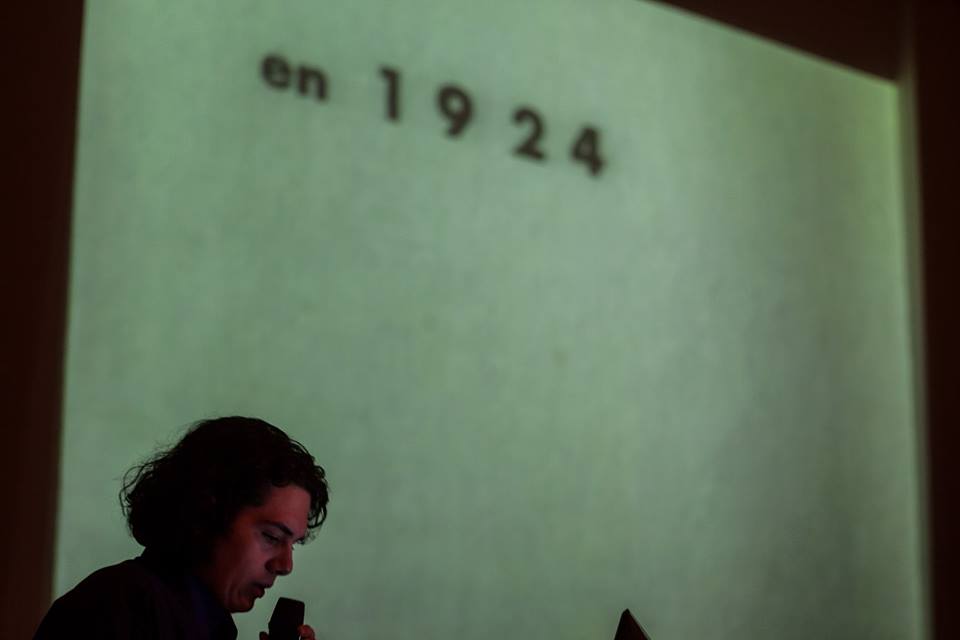
The Classroom 2 : A Pataphysical Voyage through Avant-Garde Film or the Cases, Adam Ranđelović
Auguste Marie Louis Nicolas Lumière approached Luis Buñuel Portolés and said: “All that is worthwhile has been already filmed.” Luis Buñuel Portolés slapped him and said: “But it is only 1949!” Luis Buñuel Portolés did something surreal then, something that escaped our understanding completely. At that moment Antoine Marie Joseph Paul Artaud jumped from the window of the “Alfred Jarry” theatre and slapped himself on the face because he saw André Breton coming down the street. In reaction to that René-Lucien Chomette Clair went berserk and delivered a lethal blow to the head of Salvador Domingo Felipe Jacinto Dalí, Marqués de Pubol with a loaf of baguette. A couple of days after, they all joined the funeral procession following the death coach pulled by a camel. Only André Breton stopped half-way since he had not enough names length to go all the way with that morbid caravan.
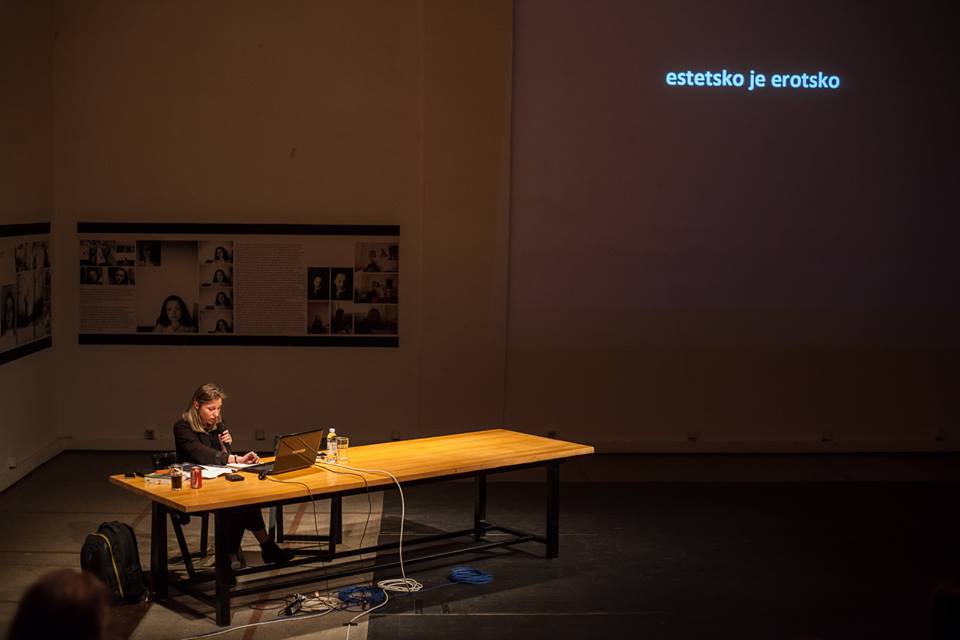
The Classroom 3: Anti-Film, Petra Belc
Anti-Film as a Space of Freedom : At the beginning of the 1960s in the subterranean rooms of the Cine club Zagreb the Yugoslav experimental film became conscious of radical possibilities of its own creative position. During the next decade through the GEFF (Genre Experimental Film Festival) it started to be, in Branislav Miltojević’s words, “a big collective cineastic happening”. Owing to the anti-film’s polyglossia and to the enthusiasm then active filmmakers, a number of cinematic elements and ways of exploration of various states of mind came about only to be theoretically articulated many years after that.
The mid-20th century remains to be one of the most interesting periods in the Yugoslav experimental film to be explored. There are still virtually unknown films made by women filmmakers that have to be looked into alongside the multilayered experiments of Belgrade’s alternative cinematography.
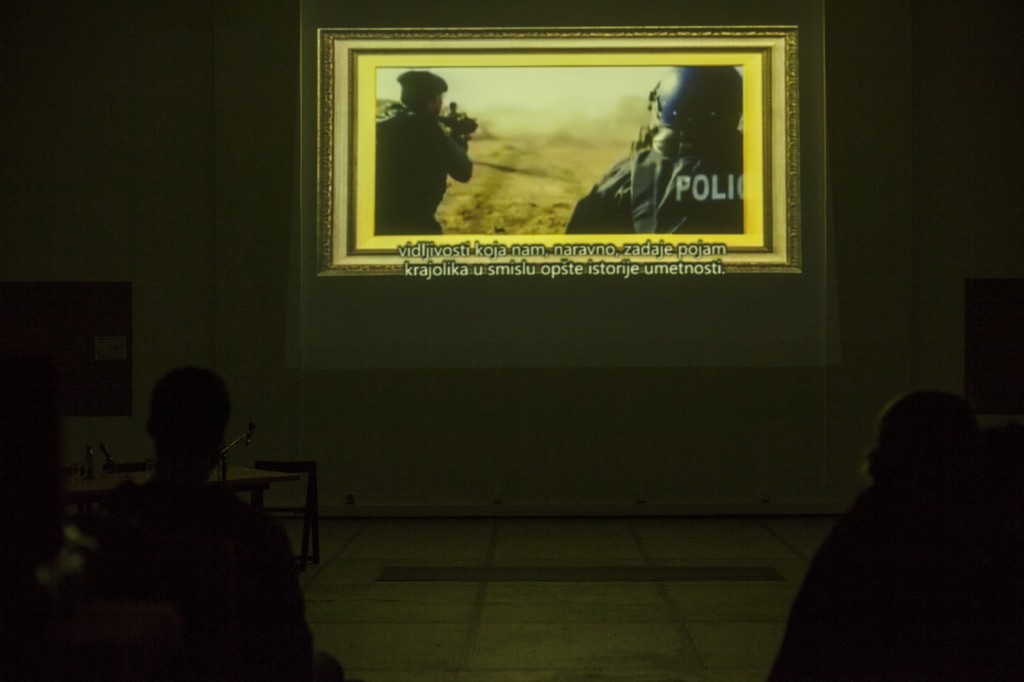
The Classroom 4: Guerilla Film, “A Threnody for the Victims of Marikana” by Aryan Kaganof, Aleksandra Sekulić
Aryan Kaganof’s film “A Threnody for the Victims of Marikana” has “kidnapped” and brought back the alienated academic discourse on the place of the 2012 rebelling miners’ massacre in South Africa.
Through that process, it named this murder a ritual therefore shedding light on the social truth of a “new democracy” and by using the experience of remix poetics in disclosing imperialist social, media and cultural mechanisms. We will discuss in what ways is this film experimental. 6 p.m. Classroom: Alternative Film, Miroslav Bata Petrović The openness of alternative film is reflected in the fact that it is devoid and actually cannot have any overall programs or manifestos. If we set out to take the amateur film as a representation of the innocence of their authors, the alternative film should be seen as an expression of the maturity of its authors.